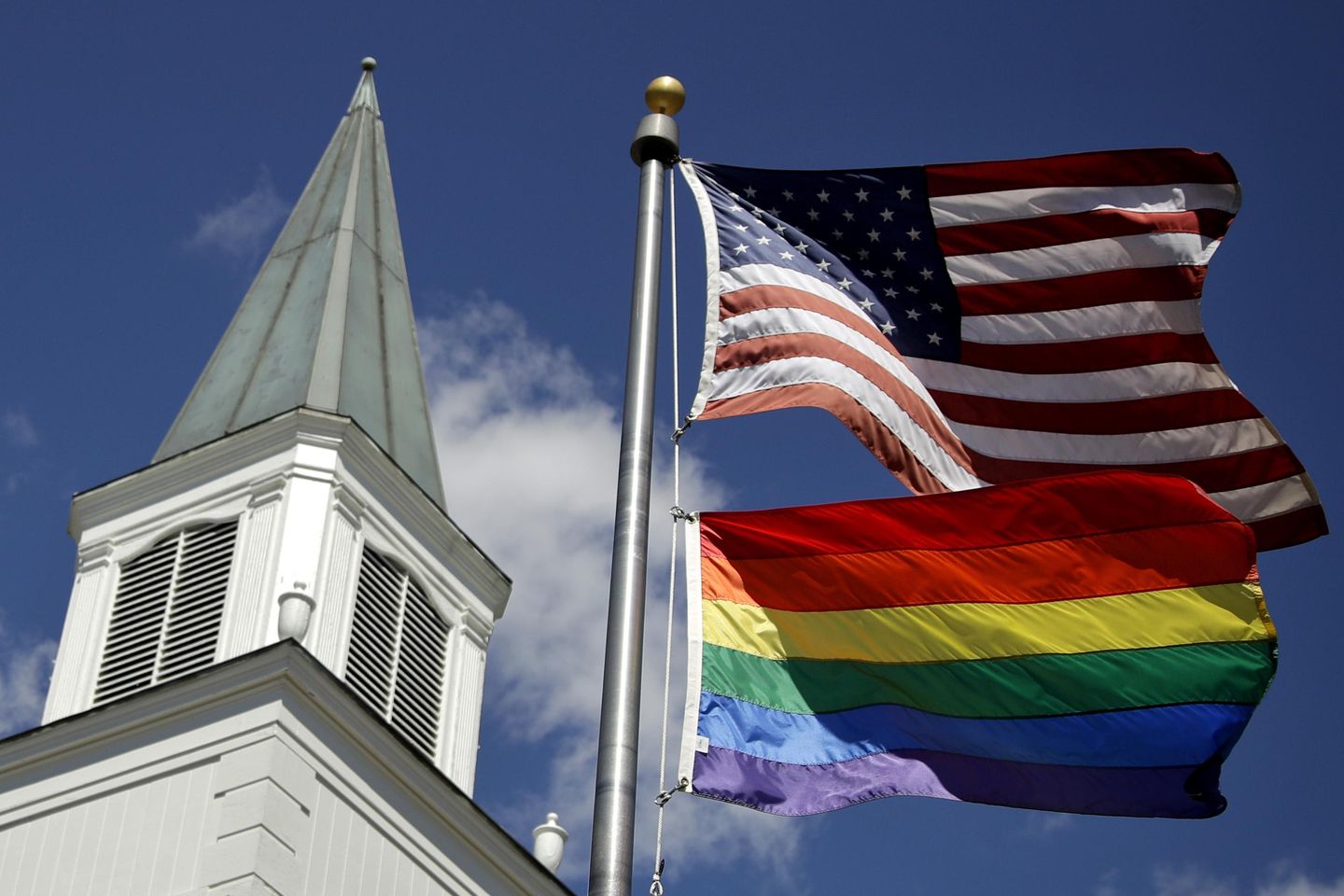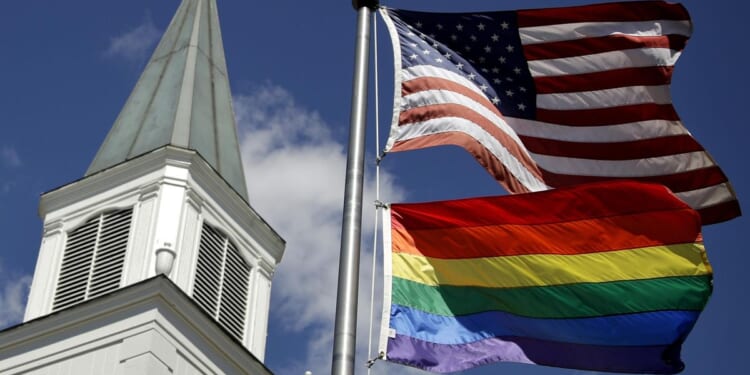
United Methodist Church delegates approved a restructuring plan that would allow church regions — including the U.S. — greater autonomy in deciding matters such as approving same-sex marriages and ordaining active LGBTQ clergy.
Delegates to the church’s General Conference meeting in Charlotte, North Carolina, approved the measure 586-164, sending it to local conferences, the equivalent of a diocese, for ratification.
If the measure is approved, U.S. church regions could decide to perform same-sex marriages and ordain LGBTQ individuals, upending decades of official UMC prohibitions. Overseas regions, including those in Africa, the Philippines and Europe, could refuse to perform them.
The measure is called “regionalization,” giving each region authority to adapt the Methodists’ “Book of Discipline,” the policy book governing church operations.
Christine Schneider-Oesch of Switzerland, a member of the committee that proposed the changes, told The Associated Press the move would bring greater equality across United Methodist Church regions.
“The big change this petition brings is really for our brothers and sisters here in the United States, where you would finally be given the right to decide things which only concern you among yourselves, the same right that we have enjoyed for a long time,” she said.
The change would be implemented through an amendment to the Protestant denomination’s constitution. Two-thirds of the local conferences would have to approve the amendment before it could take effect.
The regionalization vote came one day after delegates approved a change to the denomination’s “Social Principles” document that would redefine marriage “as a sacred, lifelong covenant that brings two people of faith into union with one another” instead of being the uniting of “one man and one woman.”
That move follows years of mounting pressure in the U.S. for the denomination to accept ordained LGBTQ clergy and to perform religious ceremonies for same-sex marriages. By the end of 2023, one-quarter of UMC congregations in the United States left the denomination, with many joining more conservative Methodist groups. Also gone were voting delegates from those churches who might have defeated the regionalization proposal.
Along with the regionalization and “Social Principles” votes, delegates are also expected to consider extending the rules under which United Methodist Church congregations could disaffiliate, both for U.S. churches that missed the December 2023 deadline and for international churches and regions that wish to leave.
In an unrelated vote Thursday, delegates approved the departure of local UMC districts in Russia, Belarus, Kyrgyzstan and Kazakhstan. Together, the districts comprised 66 churches with 1,123 members as of 2017, the United Methodist News service reported.
• This story is based in part on wire service reports.












